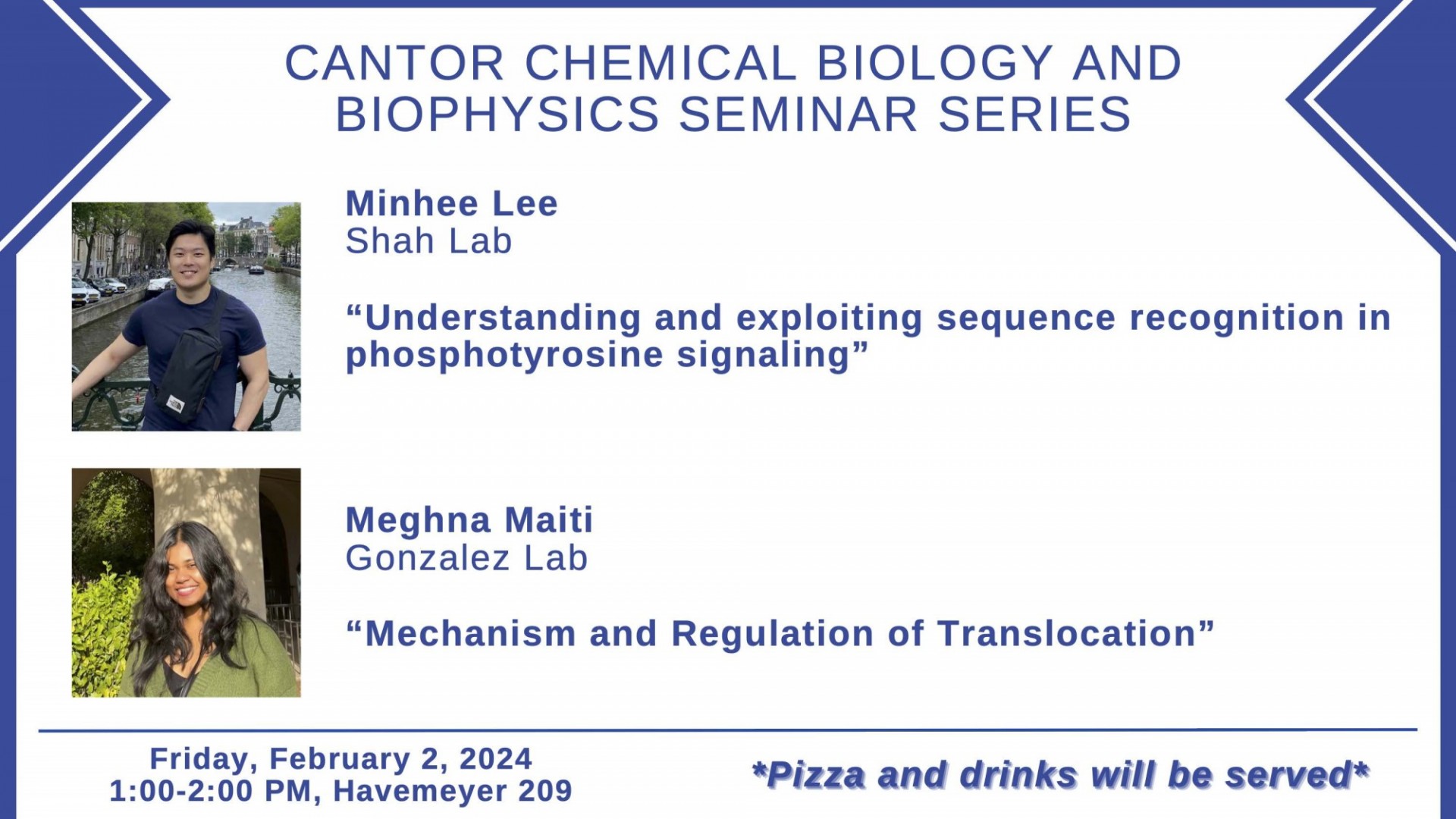Understanding and exploiting sequence recognition in phosphotyrosine signaling
Presented by Minhee Lee
Abstract:
Cell signaling processes are often driven by protein-protein interactions. In many cases, these interactions are mediated by the recognition of short linear sequences of amino acids embedded within larger proteins. For example, tyrosine kinases and phosphatases utilize such amino acid sequences for substrate recognition to facilitate phosphotyrosine signaling. Understanding the sequence preferences of kinases and phosphatases can help us define their signaling pathways, and in turn provide insight into how aberrant phosphorylation is driven by changes in sequence recognition. Decades of biochemical measurements have defined substrate sequence preferences for most tyrosine kinases. However, we still lack an understanding of how kinase sequence recognition is impacted by proximal post- translational modifications, such as lysine acetylation. Tyrosine phosphatases also have sequence preferences, but these preferences remain less characterized than those for kinases. Our lab is interested in studying sequence recognition by kinases and phosphatases, with the ultimate goal of using this information to map cell signaling pathways and design selective inhibitors. In this talk, I will present my efforts to develop a high-throughput screening platform that combines genetically-encoded peptide libraries, amber suppression, and deep sequencing to profile kinase and phosphatase sequence recognition with an expanded amino acid alphabet. I will discuss how this method can be used to examine the effect of proximal lysine acetylation on tyrosine phosphorylation. Following this, I will present how this technology may be used to identify selective peptide-based covalent inhibitors of tyrosine phosphatases.
Mechanism and Regulation of Translocation
Presented by Meghna Maiti
Abstract:
During protein synthesis, Elongation Factor G (EF-G) promotes the movement of the ribosome along the messenger RNA in discrete steps of three nucleotides. This process, called translocation, is a key step in protein synthesis, which involves complex, large-scale conformational changes in the ribosome. EF-G is a universally conserved translational GTPase but surprisingly, the energy of GTP hydrolysis by EF-G does not act as a ‘power-stroke’ in facilitating movement during translocation. Despite decades of ensemble, structural and single-molecule studies, the role of EF-G in translocation is actively debated and the underlying molecular mechanisms remain poorly understood. To answer these questions, we have used a highly-purified, fluorophore-labeled, in-vitro translation system for ensemble and single-molecule fluorescence studies. Furthermore, we have overcome technical challenges in single-molecule fluorescence microscopy, allowing us to uncover previously elusive, key mechanistic details of EF-G mediated translocation.

